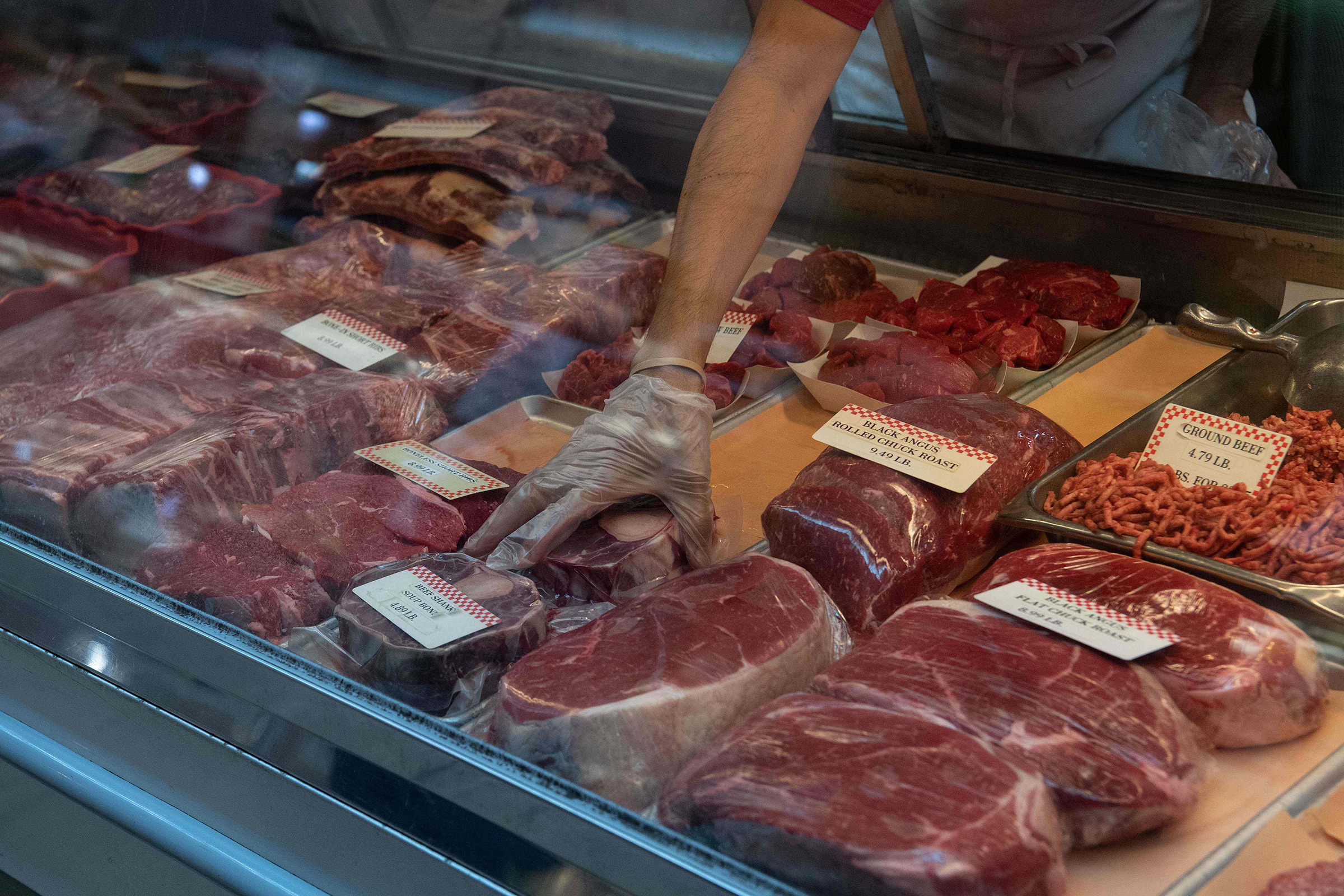
As the coronavirus has spread through America’s meatpacking plants amid a growing recognition that overcrowded factory farms are risk factors for other diseases, some people have wondered whether we’ve reached a tipping point. Might Americans finally be ready to go easy on their beloved hot dogs and steaks? Simply put, no.
It is true that some Americans have had to adapt during the pandemic. Some slaughter-houses shut down as the virus ran rampant through the workforce. One Tyson Foods pork-processing plant closed after more than 20% of its employees tested positive. Hundreds of Wendy’s locations ran out of burgers. Grocery stores put limits on how much meat customers could buy. But while Eating Animals author Jonathan Safran Foer took to the New York Times to declare, “The end of meat is here,” and others have noted the increased sales of plant-based meat products like Beyond Burgers, there is little evidence that any change in our eating habits will stick.
History tells us that Americans become upset about meat only when production is shown to be unsanitary, or when supply dwindles and prices go up. In fact, meat is so central to the American diet that President Trump has sought to keep supermarket butcher cases full with far more urgency than he has approached other aspects of the pandemic. Not only did he issue an Executive Order deeming processors of beef, pork and poultry critical infrastructure, he also announced billions of dollars in relief for food producers, much of which will benefit industrial-meat companies. These actions are not surprising: if those cases were empty on his watch, it would mean he had failed to defend a fundamental part of the country’s cultural fabric.
The consumption of meat has long signaled human authority over nature. In the U.S., the first European settlers took advantage of the ample availability of land taken from indigenous people to breed the livestock they’d brought over with them. Beef, especially, became bound to ideas of white, all-American virility. The Beef Industry Council used the slogan “Real food for real people” in the 1980s, and its famous “Beef. It’s What’s for Dinner” campaign has featured actors who give off a rugged cowboy vibe, like Sam Elliott and Matthew McConaughey.
Of course, it’s not as if we didn’t already have incentives to reduce our meat consumption. It’s well documented that animals raised for meat, dairy and eggs increase greenhouse-gas emissions that cause climate change. And for years we were told to eat less red meat because of links to heart disease, cancer and other health conditions. That produced a certain amount of change in the American diet, toward more chicken. But a 1999 Gallup poll found that 6% of Americans identified as vegetarians. In 2018, that number was 5%.
The one time that the national dependence on cheap meat was truly challenged was when Upton Sinclair published The Jungle in 1905. His intention was to drum up support for a movement that would end the abuse and exploitation of the workforce at the nation’s meatpacking plants. Instead, the depiction of unsanitary production conditions primarily caused concern over whether the meat that people were eating was rotten or contaminated. The Federal Meat Inspection Act passed in 1906, mandating that the USDA ensure sanitary conditions and proper labeling, but more than a century later, workplace hazards remain: Those needs are secondary when slaughterhouses are staffed largely by immigrant labor making low wages while living with repetitive motion injury, damaging psychological effects and surprise raids by Immigration and Customs Enforcement.
Don’t expect the pandemic to change that. “The producers want people never to think about them,” says Joshua Specht, author of Red Meat Republic: A Hoof-to-Table History of How Beef Changed America. “They want them to imagine there’s no backstory, and for the vast majority of people, I think that is still the case.” Trump’s recent moves to keep production going only made official what we already know about meat in this country: it’s considered essential to American life, and that’s how it will remain.
More Must-Reads from TIME
- Introducing the 2024 TIME100 Next
- The Reinvention of J.D. Vance
- How to Survive Election Season Without Losing Your Mind
- Welcome to the Golden Age of Scams
- Did the Pandemic Break Our Brains?
- The Many Lives of Jack Antonoff
- 33 True Crime Documentaries That Shaped the Genre
- Why Gut Health Issues Are More Common in Women
Contact us at letters@time.com